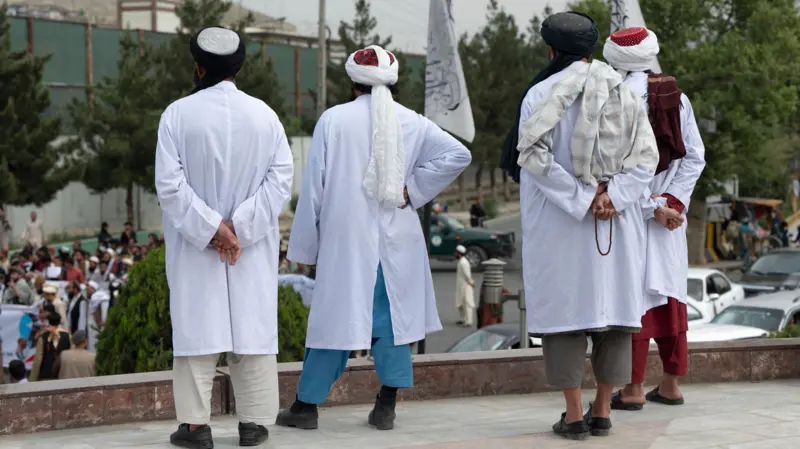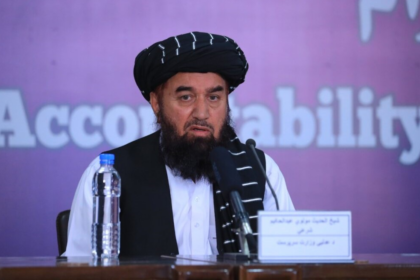RASC News Agency: The Taliban’s Ministry for the Propagation of Virtue and Prevention of Vice has issued stringent regulations targeting swimming pools and spas across Afghanistan. Pool operators have been instructed to replace modern swimwear with traditional trousers (“izar”) for patrons before allowing them access to swimming facilities. Furthermore, spa attendants are now prohibited from providing body-scrubbing services between the navel and knees and to individuals under the age of 18. Operators of swimming pools and bathhouses in Herat have expressed frustration, describing the Taliban’s directives as intrusive and detrimental to their livelihoods. They report that constant oversight by the Virtue Ministry disrupts operations, with staff and patrons regularly subjected to threats and humiliation.
Enforcers of the Taliban’s Virtue Ministry have defaced decorative images on the walls of water parks, deeming them inappropriate, and consistently object to the attire of swimmers. In many cases, swimwear belonging to patrons is confiscated and replaced with izars. Spa workers, who provide services such as body scrubbing, have similarly faced restrictive measures. According to reports, Taliban enforcers have forbidden body scrubbing practices targeting areas from the navel to the knees and have banned services for boys under 18. Several spa employees in Herat have disclosed that they have been threatened with imprisonment or the closure of their establishments for non-compliance.
Taliban officials frequently enter spa facilities without authorization, issuing verbal threats to staff and insulting customers. These repressive measures are not limited to Herat. Similar complaints have emerged from bathhouse operators in Kabul, who claim the Taliban’s restrictions are stifling their businesses and driving many to the brink of collapse. The recent directives reflect the Taliban’s continued imposition of their rigid interpretation of morality on public life, further exacerbating the erosion of individual freedoms and economic stability in Afghanistan






